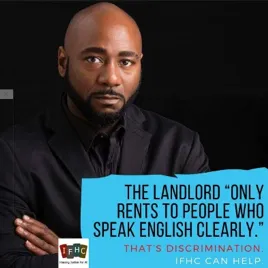The United States is a community of many cultures and languages. As such, knowing how to appropriately assist people with limited English proficiency (those who do not read, write, speak or understand English very well) presents opportunity to broaden potential markets and, most importantly, prevent a civil rights violation.
All housing providers must comply with the Fair Housing Act (Title VIII of the Civil Rights Act). The Fair Housing Act prohibits discrimination against people who are of a different national origin, which includes many people who are not proficient in English. Providers of federally-assisted housing and programs must also comply with Title VI of the Civil Rights Act. Title VI requires additional language assistance measures.
The Fair Housing Act is meant to ensure equal treatment of people who are limited English proficient. Title VI is meant to result in an equal outcome for those who are limited English proficient because of the additional language assistance measures.
Limited English proficiency is not listed among the protected classes in either title of the Civil Rights Act, however, case law equates limited English proficiency to race and national origin which are both protected classes.
It is Intermountain Fair Housing Council’s hope that by providing these resources to both conventional and federally-assisted housing providers that civil rights violations will decrease and that people who are limited English proficient will find a more welcoming housing environment. Simply stated, we hope everyone will do better by having this information available.
For consumers, this information may help you better understand your language assistance rights and your right to file a complaint if you feel these rights have been violated.
Please let us know how we might improve or add to this resource.
Zoe Ann Olson
Executive Director




